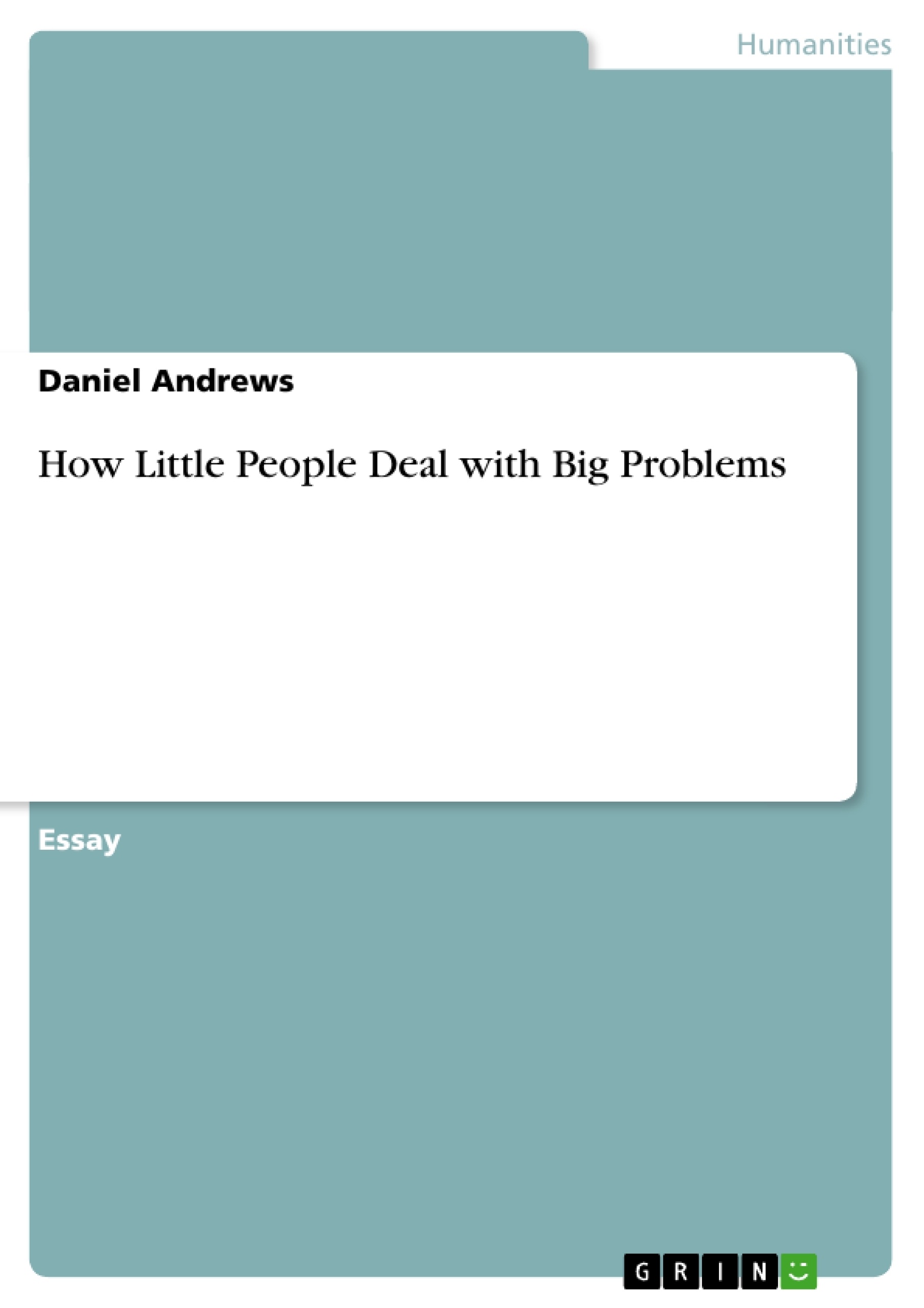According to statistics, one person in every 25,000 is affected by dwarfism. A dwarf, or little person, can be defined as a person with a height of less than four-feet, ten-inches. Often times little people are bullied or teased, and they wish for people to recognize them as people and stop the abuse. An example of this shows itself in the fact that many dwarfs prefer to be called “little people.” Little people want to be treated with respect because they are still human at the core, they are determined to be treated like humans, and they cannot help being short.
In the past and even the present, a contributing factor to the determination dwarfs possess to be treated well is that they have been treated poorly, both emotionally and physically. Only two decades ago a barbaric and dangerous sport called dwarf-tossing was banned across the United States and Canada (Legislative) in which dwarfs wore thick padding and are thrown by men contesting to see who can through the farthest. Recently Mitch Workman, a Florida state representative, proposed the idea of abolishing the ban on dwarf-tossing in Florida (NPR). Many dwarfs were opposed to the idea and one dwarf spoke for all when he wrote about his feelings on the matter in a letter to the Washington Post. In the letter he says his life has gotten better since the ban on dwarf-tossing because he has been treated like a “normal” person, and he is strongly opposed to the idea of abolishing the ban (Flock). Sadly, in today’s society and in the past, little people have been abused and mistreated which is a major cause of the want little people have to be treated like anyone else.
Inhaltsverzeichnis (Table of Contents)
- How Little People Deal with Big Issues
- Why Little People Want to Be Treated with Respect
- The History of Mistreatment
- Dwarf-Tossing
- The Abilities of Little People
- Dwarf Sports Association of the United Kingdom
- Belfast World Games
- The Importance of Respect
- The Incurable Nature of Dwarfism
- Social Expectations and Dwarfism
- Dwarfism in Other Species
- Little People: A Plea for Respect
- Tenacious Intellect
- Personality over Height
Zielsetzung und Themenschwerpunkte (Objectives and Key Themes)
This text aims to explore the experiences of individuals with dwarfism, particularly their desire for respect and recognition as equals. It examines the historical and contemporary challenges faced by little people, including prejudice, mistreatment, and the societal tendency to judge based on physical stature. The text emphasizes the unique perspectives and struggles of individuals with dwarfism, while simultaneously highlighting their resilience, determination, and inherent human dignity.
- The desire for respect and equal treatment among individuals with dwarfism.
- The historical and ongoing mistreatment of little people, including prejudice and discrimination.
- The significance of athleticism and other personal abilities in challenging societal stereotypes and advocating for respect.
- The inherent unchangeable nature of dwarfism and its implications for understanding and treating individuals with this condition.
- The importance of recognizing and valuing the individual personalities and contributions of individuals with dwarfism.
Zusammenfassung der Kapitel (Chapter Summaries)
The text begins by outlining the prevalence and definition of dwarfism, emphasizing the desire of little people to be recognized and treated as individuals. It then explores the historical and ongoing mistreatment of dwarfs, focusing on the former sport of dwarf-tossing and the continued prejudice faced by little people. The text then highlights the athleticism of dwarfs, showcasing their determination and skill in sports, which they use to challenge societal expectations and gain respect.
The text continues by discussing the significance of dwarfism as an incurable condition, arguing that it is not a reason for demeaning or disrespecting individuals. This section explores the psychological effects of dwarfism and provides evidence that height is often associated with social and professional worth. The final section examines the personalities and intellect of little people, demonstrating their resilience, strength, and right to respect.
Schlüsselwörter (Keywords)
Dwarfism, little people, respect, prejudice, discrimination, athleticism, dwarf-tossing, social expectations, personality, resilience, human dignity.
Frequently Asked Questions
How common is dwarfism?
According to statistics, approximately one person in every 25,000 is affected by dwarfism.
What is the preferred terminology for people with dwarfism?
Many individuals with this condition prefer to be called "little people" and emphasize their desire to be recognized as human beings first, rather than being defined by their height.
What was "dwarf-tossing" and why was it controversial?
Dwarf-tossing was a demeaning activity where little people were thrown for sport. It was banned in many places because it was physically dangerous and emotionally abusive, treating humans like objects.
How do little people challenge societal stereotypes?
Through organizations like the Dwarf Sports Association and participation in events like the World Games, little people demonstrate their athleticism, determination, and skill.
Is dwarfism a curable condition?
Dwarfism is generally an incurable genetic condition. The text argues that physical stature should not determine a person's social or professional worth.
- Quote paper
- Daniel Andrews (Author), 2012, How Little People Deal with Big Problems, Munich, GRIN Verlag, https://www.grin.com/document/187975



